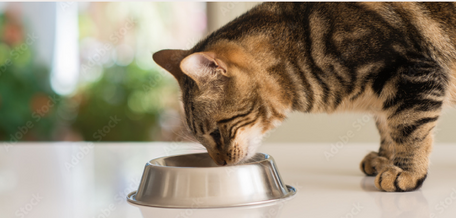
In recent years, more and more pet owners are moving to raw diets for cats. They believe that this natural approach to feeding can offer numerous health benefits. This article aims to dive into the science behind these raw diets for cats, examining the nutritional and health benefits that raw meat can provide for cats.
Key Takeaways
-
Raw diet for cats are becoming increasingly popular due to their natural appeal.
-
These diets offer high-quality protein and essential amino acids like taurine, which are vital for a cat’s health.
-
Scientific studies suggest that raw meat for cats can improve digestive health and reduce gastrointestinal problems.
-
Raw meat can help maintain better dental health by reducing plaque and tartar buildup.
-
There are safety concerns, such as bacterial contamination, which require careful handling and preparation of raw meat.
Introduction and Overview of Raw Meat for Cats
In recent years, there's been a noticeable shift among cat owners towards feeding their pets raw meat diets. This trend is driven by a desire to provide a more natural and biologically appropriate diet for their feline companions. Many pet owners believe that raw meat for cats can offer numerous health benefits, aligning closely with the natural hunting and eating habits of wild cats.
This blog aims to delve into the scientific research that supports the nutritional and health benefits of raw diet for cats. By examining various studies and expert opinions, we will uncover how raw meat for cats can contribute to improved digestion, better dental health, and enhanced immune function. Whether you're considering this diet for your cat or simply curious, this article will provide valuable insights into the science behind raw meat diets.
Understanding the Basics of Raw Meat Diets

What Is a Raw Meat Diet for Cats?
A raw meat diet for cats involves feeding them uncooked animal products. This includes muscle meat, organ meat, and bones. The most common meats used in these diets are chicken, fish, and eggs. A raw food diet (RFD) usually includes raw muscle meat, organ meat, and ground bones. This approach aims to mimic the natural diet of wild cats, providing them with the nutrients they would get in the wild.
Historical Context
Wild cats are natural hunters, and their diet consists mainly of raw prey. This includes small mammals, birds, and insects. By feeding domestic cats a raw meat diet, pet owners aim to replicate these natural eating habits. This approach is based on the belief that a diet similar to what cats would eat in the wild is more beneficial for their health.
Raw meat for cats is not just a trend; it's a return to their natural eating habits. This method aims to provide a more natural and nutritious diet, similar to what they would consume in the wild.
Nutritional Benefits of Raw Meat for Cats
High Protein Content
Cats are obligate carnivores, meaning they need a diet high in protein to thrive. Raw meat for cats provides high-quality, easily digestible protein that supports muscle development and overall health. Unlike processed foods, raw meat retains its natural protein structure, making it more beneficial for your feline friend.
Essential Amino Acids (Taurine)
Taurine is a critical amino acid that cats cannot produce on their own. It is essential for heart health, vision, and reproduction. Raw meat is a rich source of taurine, ensuring that your cat gets this vital nutrient in its most natural form. Without adequate taurine, cats can suffer from severe health issues, including heart disease and vision problems.
Balanced Fats and Fatty Acids
Fats are crucial for energy production and maintaining a healthy coat. Raw meat for cats offers a balanced profile of fatty acids, including omega-3 and omega-6, which are essential for skin health and reducing inflammation. A raw diet for cats ensures they receive these fats in their most natural and beneficial state.
Feeding your cat a raw diet can lead to noticeable improvements in their coat, energy levels, and overall well-being. It's a natural way to meet their nutritional needs without the additives and fillers found in commercial cat foods.
Research-Backed Health Advantages of Raw Meat for Cats

Improved Digestive Health
One of the most noticeable benefits of raw meat for cats is improved digestion. Studies have shown that raw meat is highly digestible, meaning cats can absorb more nutrients from their food. This leads to smaller, less smelly stools, indicating better nutrient absorption and overall digestive health. Cats on raw diets often experience fewer gastrointestinal issues, such as vomiting and diarrhea.
Dental Health Advantages
Feeding cats raw meat can also lead to better dental health. The act of chewing raw meat and bones helps to scrape and clean their teeth, reducing plaque and tartar buildup. Research on wild felids supports this, showing that a natural diet promotes healthier teeth and gums. This can result in fewer dental problems and less need for professional cleanings.
Enhanced Immune Function
A raw meat diet may also bolster a cat's immune system. Some studies suggest that the natural enzymes and nutrients found in raw meat can enhance immune function, leading to fewer infections and illnesses. This is because a raw diet is less processed and contains more natural nutrients that support overall health.
Feeding your cat a raw meat diet can lead to significant health improvements, from better digestion to enhanced immune function. Always consult with your veterinarian before making any dietary changes.
Addressing Safety Concerns with Raw Meat Diets
Bacterial Risks and Handling Precautions
Feeding your cat a raw meat diet comes with potential risks, especially from bacteria like Salmonella and E. coli. These bacteria can make your cat sick and can even be passed on to humans. Proper handling and preparation are crucial to minimize these risks. Here are some steps to follow:
-
Separation: Keep raw meat separate from other foods. Clearly label it to avoid confusion.
-
Cross Contamination: Use separate utensils, plates, and cutting boards for raw meat. Wash them immediately after use.
-
Hand Washing: Always wash your hands with soap and water after handling raw meat.
-
Quick Disposal: Discard uneaten raw food quickly to prevent bacterial growth.
-
Stainless Steel Bowls: Use stainless steel bowls as they are easier to disinfect.
-
Regular Disinfection: Disinfect all bowls and plates that come into contact with raw meat regularly.
-
Avoid Kisses: Do not let your cat lick your face after eating raw meat.
-
Safety for Vulnerable Individuals: Children, elderly, or immunocompromised individuals should not handle raw meat.
Balancing the Diet
Ensuring that a raw meat diet is nutritionally balanced is essential. Many raw diets can be unbalanced and lack essential nutrients. Consult with your veterinarian to make sure your cat's diet meets all nutritional requirements. Veterinarians can provide guidance on supplements and other additions to ensure a complete and balanced diet.
Case Studies and Expert Opinions
Veterinarian Perspectives
Veterinarians have observed numerous benefits of raw meat diets for cats. Dr. Anna Sutton, a seasoned vet, notes that many cats on raw diets show improved coat health and energy levels. Clinical observations often reveal fewer gastrointestinal issues and better overall health. Dr. Sutton emphasizes the importance of a balanced diet, stating, "While raw meat provides excellent nutrition, it's crucial to ensure all dietary needs are met."
Case Studies of Cats on Raw Diets
Several case studies highlight the positive impact of raw meat diets on cats. For instance, a study involving 24 cats fed a commercial raw meat-based diet showed significant health improvements. These cats had fewer instances of digestive problems and better dental health. Another case involved two cats with suspected salmonellosis, which underscores the need for careful handling and preparation of raw meat.
Real-life examples show that cats on raw diets often thrive, displaying better health and vitality. However, it's essential to follow safety guidelines to avoid potential risks.
Expert Opinions
Sharon Keaton, a passionate groomer with 40 years of experience, shares her journey in the pet grooming industry and her commitment to dog and cat health. She founded Shear Elegance Pet Boutique, emphasizing the importance of nutrition, particularly raw dog food, in her work. Her story reflects her dedication and the wisdom gained through years of grooming, inspiring others to consider the benefits of raw feeding for pets. She
ultimately discovered BJ’s Raw Pet Food. Since getting on the subscription, Sharon has become a loyal customer. When asked why, she explains that “the quality of food is very obvious, just outstanding!” “BJ’s has a large variety with everything that your animal could want and need to keep them 100% healthy”. “It works”!
Conclusion
In summary, the scientific evidence supporting the benefits of a raw meat diet for cats, including options like BJ's Raw Pet Food, is compelling. From improved digestive health to better dental hygiene and enhanced immune function, raw diets offer numerous advantages. The high protein content, essential amino acids like taurine, and balanced fats found in raw meat contribute significantly to a cat's overall well-being. Additionally, the natural hunting and eating habits of wild cats provide a historical context that aligns with the principles of raw feeding.
If you're considering a raw meat diet for your cat, it's crucial to consult with your veterinarian. They can provide personalized advice and ensure that the diet is nutritionally balanced. By making informed choices, including options like BJ's Raw Pet Food, you can help your cat thrive and enjoy a healthier, more natural diet. Consider incorporating raw meat into your cat’s meals for improved health and vitality.
If you want to give your pets the best nutrition, visit our website. We have a variety of raw food options for both dogs and cats. Your furry friends deserve the best, so don't wait!
Frequently Asked Questions
What is a raw meat diet for cats?
A raw meat diet for cats includes feeding them uncooked animal meats, organs, and sometimes bones. It mimics what cats would naturally eat in the wild.
Are raw meat diets safe for cats?
Raw meat diets can be risky due to potential bacterial contamination. Proper handling and preparation are essential to minimize these risks.
Why do some cat owners choose raw meat diets?
Some cat owners believe that raw meat diets are more natural and healthier for their cats, mimicking the diet of wild cats.
What are the benefits of a raw meat diet for cats?
Proponents claim benefits like improved digestion, better dental health, and enhanced immune function, although scientific evidence is limited.
How can I safely prepare raw meat for my cat?
Always use separate utensils and surfaces for raw meat, wash your hands thoroughly, and ensure all food is fresh and properly stored.
Should I consult my veterinarian before starting a raw meat diet for my cat?
Yes, it's crucial to consult with your veterinarian to ensure the diet is balanced and safe for your cat's specific needs.




















